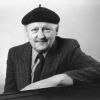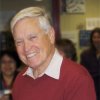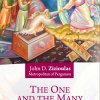Larry Vuckovich was born in Kotor, Montenegro (Former Yugoslavia). He came to San Francisco in 1951 and was immediately exposed to a flourishing jazz scene. After receiving a classical training he became a frequent guest at music clubs like the Blackhawk where he met Vince Guaraldi. Mr. Vuckovich studied jazz piano as Guaraldi's only piano student. At the same time he enrolled in music studies at San Francisco State University, where John Handy was a major influence on the school's jazz program.
Mr. Vuckovich began his professional career in 1959 with tenor saxophonist Brew Moore, accompanying singers David Allyn and Irene Kral. Larry also performed with such instrumentalists like Handy and Monk Montgomery. During the mid sixties, he began a long-term collaboration with a vocalist and lyricist Jon Hendricks, and appeared at major festivals and clubs worldwide, including famous musical stage production Evolution of the Blues.
In the 70s Mr. Vuckovich was most active in Europe. There, he toured with Dexter Gordon and Philly Joe Jones and other famous musicians. Upon his return to San Francisco he became the house pianist at the well-known Keystone Korner until its closing in 1983. In the 1980s Vuckovich lived and performed in New York. There, he appeared at major jazz clubs, including Village Vanguard, Blue Note, Bradley's, Zinno's, and others. During this period of his career he received top reviews from the New York Times, the Village Voice and The New Yorker. The New York Times saw Larry as a truly unique musician who “brings with him an outlook and a collection of influences that set him apart from most pianists who are heard regularly in New York.”
Mr. Vuckovich now lives in Northern California, supported by his family of musicians. He often performs all over the San Francisco Bay Area and was named a “Jazz Ambassador of Good Will” for the newly renovated Lincoln Center premier performing arts center in July of 2008. In 2006 there was a Larry Vuckovich Day in San Francisco on December 8.
More information about Mr. Vuckovich, his remarkable new production and distinguished career is available at: http://larryvuckovich.com/





